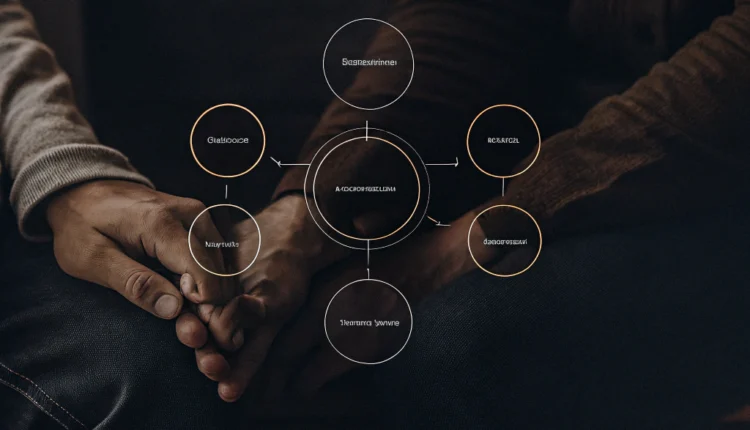Transforming Care for Neurodivergent Depression
Navigating the complex landscape of mental health is challenging, especially when it comes to understanding neurodivergent individuals. In this digital age, there’s a growing recognition that neurodivergence—encompassing traits related to conditions like autism, ADHD, and others—is not just about putting labels on isolated problems, but rather addressing a range of overlapping characteristics. Unfortunately, current clinical services often fall short, sticking to rigid diagnostic boxes and ignoring the broader picture of needs and strengths an individual may possess.
A group of innovative minds from the University of Glasgow and the Gothenburg Research Institute has introduced an exciting tool that could change the game. This digital tool, called ESSENCE-D, is crafted to better capture the nuances of neurodivergence. Instead of zeroing in on a specific diagnosis, ESSENCE-D surveys a wide spectrum of traits across multiple neurotypes, helping create a more holistic understanding of an individual’s unique blend of strengths and challenges.
But how does this work, and what makes it stand out in the pursuit of supporting neurodivergent individuals? Imagine trying to explore the signs and symptoms of depression in someone who is neurodivergent. Traditional models might not fully grasp the interplay of various traits and how they complicate depression. ESSENCE-D can help clinicians and families visualize these complexities through comprehensive profiles, making it easier to devise targeted and effective interventions.
Parents and practitioners who have piloted this tool describe it as intuitive and helpful, noting its potential in streamlining care pathways. As the initiative moves through clinical trials, ESSENCE-D is showing promise in aligning neurodevelopmental services with neurodiversity principles, improving how care is delivered and tailored.
In the context of depression, the tool’s holistic approach might prove invaluable. For instance, natural remedies for depression often require an understanding of the person’s emotional and cognitive profile—something ESSENCE-D can illuminate by considering a full range of neurodevelopmental traits. Whether exploring the best therapy for depression nearby or contemplating depression medication side effects, having a well-rounded view of the patient can lead to more personalized care.
Furthermore, helping someone with depression becomes more nuanced with ESSENCE-D’s insights. By painting a clearer picture of the individual’s mental health landscape, the tool offers a basis for more empathetic, informed support strategies. It’s not just about addressing symptoms in isolation but creating environments that appreciate and step up to the complexities these individuals face.
The absence of conflict of interest in the project and the ongoing sharing of findings means that ESSENCE-D is poised as a trustworthy tool in the mental health professional’s kit. It engages with data-driven insights to refine its approach continually, and there’s hope that its full adoption could result in a significant uplift in the quality of life for neurodivergent individuals facing challenges like depression.
The introduction of ESSENCE-D marks a pivotal shift towards more compassionate and inclusive mental health care systems. By embracing a more integrated perception of neurodiversity, mental health services can enhance support frameworks—not just for neurotypical paths but for everyone. As the conversation continues to develop around mental health, groundbreaking tools like ESSENCE-D provide a bridge over traditional gaps, potentially reshaping the future of mental health care for the better.

